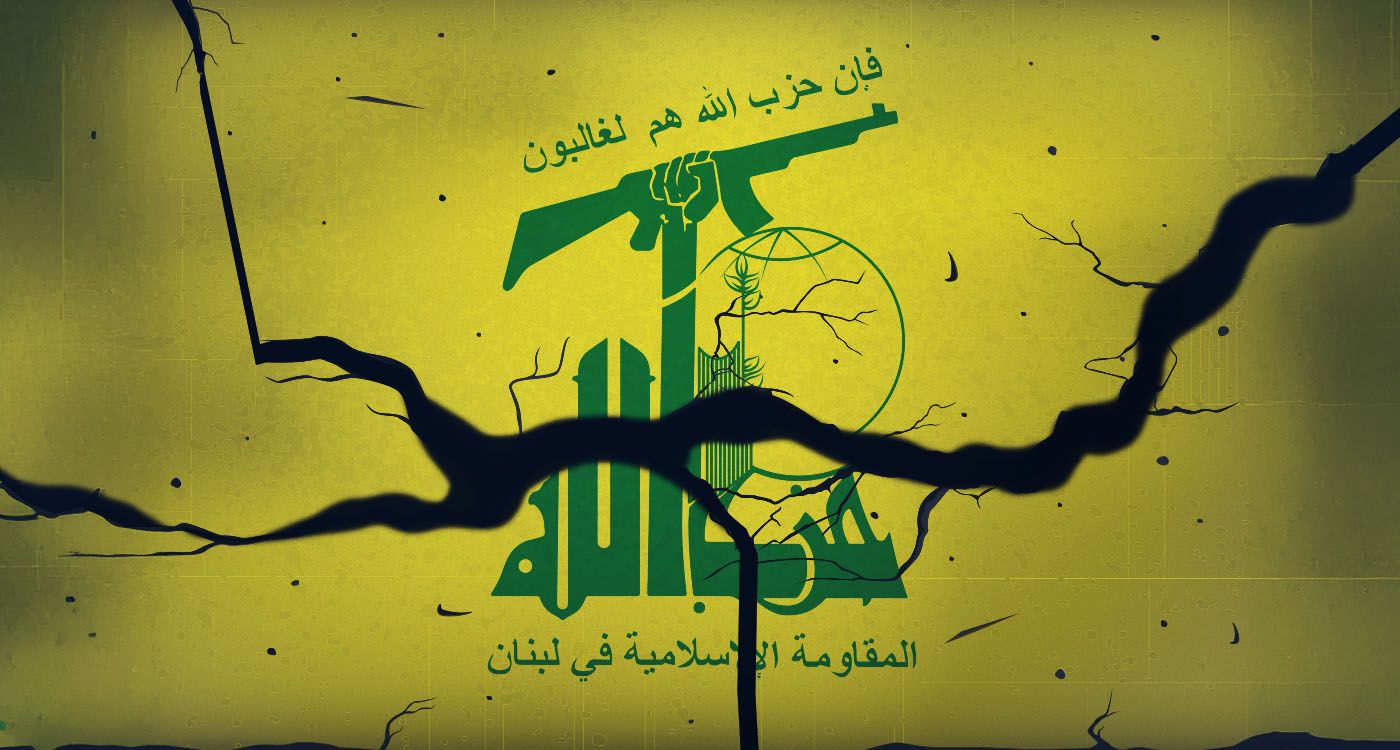- Home
- Highlights
- Hezbollah’s Overused Triptych: Paranoia, Reality, and Danger

©This Is Beirut
Six months after the ceasefire took effect, residents of southern Lebanon are still left wondering who will rebuild their homes. Meanwhile, Hezbollah’s secretary-general clings to the old ideological lifeline—“People, Army, Resistance”—like a castaway clutching his last buoy.
Once a rallying cry, the slogan now rings hollow—a mantra repeated ad nauseam to mask a political reality increasingly out of sync. Beyond the party’s inner circle, few still believe in a formula that has long since failed the test of time.
While speeches continue to proclaim “victory” and “deterrence,” hundreds of thousands of Lebanese endure internal exile and uncertainty, stripped of a future and even the most basic stability. The entire country—drained and fragile—looks on, sometimes with anger.
Can we seriously talk about “resistance” when the country is on its knees?
When the only future in sight is endless conflict—without debate, without alternatives?
Resistance for whom? And for what, exactly?
In Washington, ambiguity is no longer an option. The US administration is stepping up demands for Hezbollah to disarm, viewing it as essential to any credible reconstruction effort in southern Lebanon. The message couldn’t be clearer: massive, crucial international aid will not arrive as long as the pro-Iranian Shia militia continues to act on its own agenda and that of its Iranian backer.
The upcoming visit of US Special Envoy Morgan Ortagus will no doubt underscore the urgent nature of the situation. The time for wavering is over.
In this context, the Lebanese president sent a clear message: starting in mid-June, the disarmament of Palestinian camps in Beirut must begin, to be extended nationwide.
This initial step—both symbolic and practical—is intended to set the stage for a broader process: the disarmament of all militias across Lebanon, especially the most powerful and contentious—Hezbollah.
This marks a gradual but unmistakable strategy aimed at removing weapons from areas where the state has never exercised control, addressing the core issue of those still defying legitimate authority.
But the catch is this: Hezbollah is caught in a deep strategic dilemma.
On one hand, the Shia group fully understands that maintaining an active military posture deters investment, deepens Lebanon’s diplomatic isolation, and exacerbates poverty in its own strongholds.
On the other, it fears that stepping back from its military role would weaken its hold on the Shia community—an influence it has carefully built over decades through clientelism, intimidation, propaganda, and frequently acting as a substitute for the state.
But things are shifting. Even within the Shia community, despite outward displays of loyalty, questions are emerging about the true cost of this endless “resistance.” The low turnout in recent municipal elections is one clear indication.
To help this community break free from Iran’s grip, other segments of Lebanese society will need to reassure them by clearly distinguishing the militia that has served Tehran’s interests at the country’s expense from Lebanese Shias, who share the same rights and responsibilities as everyone else. This echoes developments beginning to take shape in Iraq.
Hezbollah has become a stagnant force—unable to reinvent itself and trapped in war rhetoric that now persuades only those who remain directly dependent on it.
Meanwhile, Lebanon waits: waiting for peace, reconstruction, the return of tourists, and a fresh political vision. It waits for others to stop acting on its behalf without prior approval.
The triptych formula of “People, Army, Resistance” is dead. It now survives on little more than fear, habit, and the myth of an invented past. The time has come to turn the page.
If it doesn’t, no one can rule out the possibility of a new war.
For example, the Israeli army could well decide to “finish the job.”
Another, more nightmarish scenario: Ahmad el-Chareh—who officially re-entered the international fold through the front door after his dramatic entrance via the “Sublime Porte”—could receive the green light to unleash on Lebanon mobs of Islamist fighters from Syria, Afghanistan, Chechnya, Uzbekistan, and other armed groups, all while simultaneously getting rid of these troublesome and unsavory allies.
Given what they’ve “accomplished” in Syria, their intentions toward us Lebanese are all too clear. These extremists are already warning some Lebanese they encounter in the streets of Damascus: “We’ll be coming to your doorstep soon.”
Hardly reassuring—given their well-known methods, where “collateral damage” is the norm.
At this rate, southern Lebanon won’t be the only region left in ruins; the entire country risks being buried alongside its empty slogans and hollow triptych.
Voltaire once said, “Those who can make you believe absurdities can make you commit atrocities.”
We’re closing in fast.
Read more




Comments